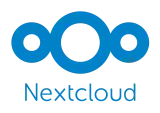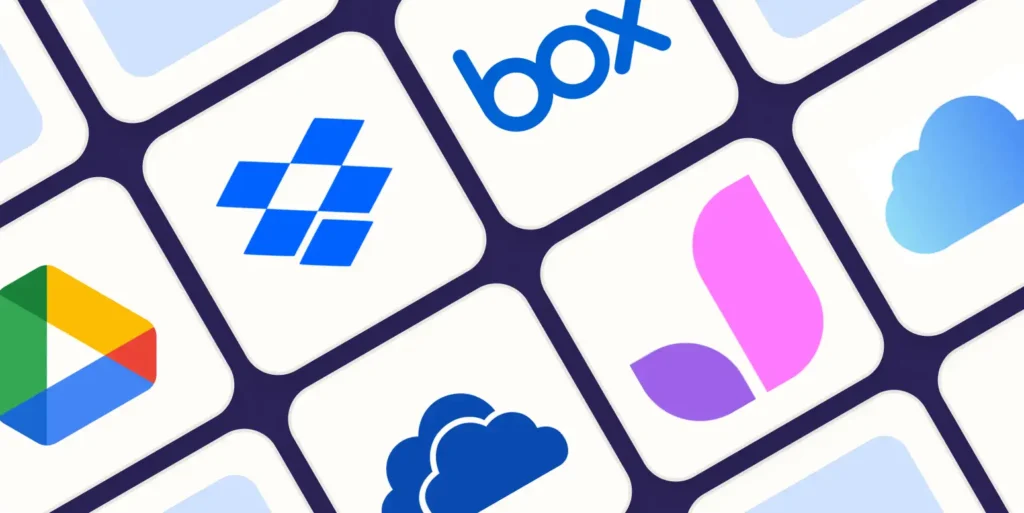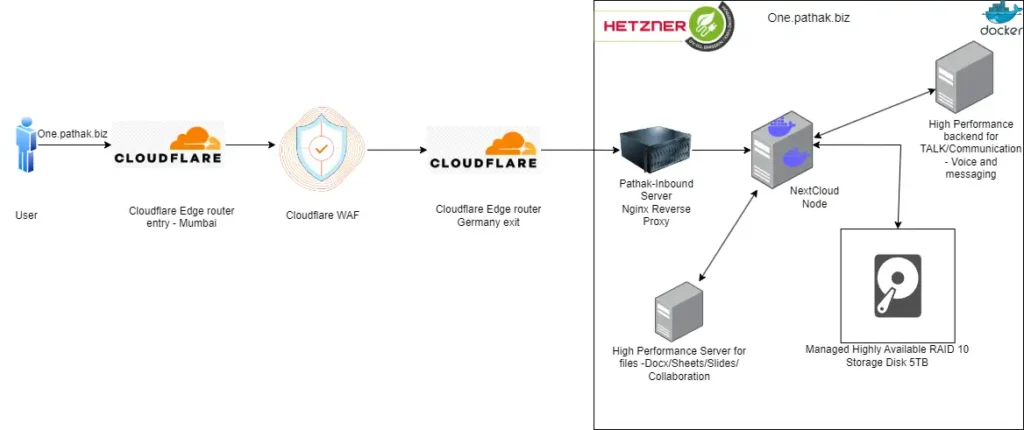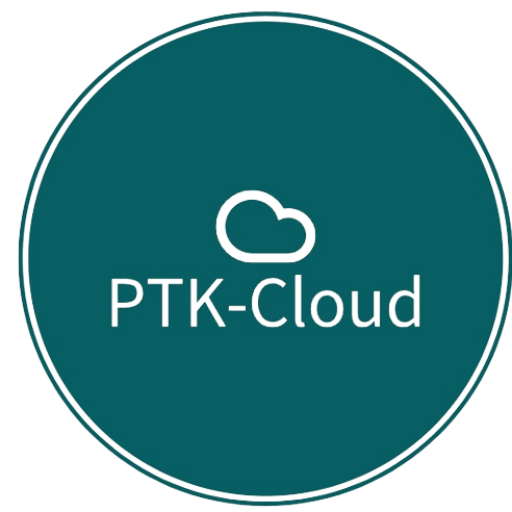What is NextCloud?

Nextcloud is an open-source suite of client-server software for creating and using file hosting services. It is designed to provide functionality similar to Dropbox, Google Drive, or OneDrive, but with a focus on data privacy and control. Here are some key features and aspects of Nextcloud:
- File Storage and Sharing: Nextcloud allows users to store files, synchronize them across devices, and share them with others. Users can control permissions for file access and sharing
- Privacy and Security: One of the primary advantages of Nextcloud is its strong focus on security and privacy. Data is stored on servers that users control, either on-premises or through a trusted hosting provider, ensuring that users maintain control over their data.
- Collaboration Tools: Beyond file storage, Nextcloud includes various collaboration features such as document editing (via integrations with Collabora Online or OnlyOffice), calendar and contact management, and real-time chat and video calls (via Nextcloud Talk).
What exactly is a Cloud Storage ?

In a simpler language, Any cloud service is nothing but someone else’s computer running any application. Cloud Computing? It is someone else’s computer/server in a data center. Similarly, Cloud storage is someone else’s storage offered to you at a monthly premium.
Cloud storage is a service that allows you to store data on remote servers accessed via the Internet. Instead of keeping files on a local hard drive or physical storage device, you save them to a cloud service provider’s data centers. Key features include:
- Accessibility: Access your data from any device with an internet connection.
- Scalability: Easily adjust storage capacity to meet your needs.
- Cost-Effectiveness: Typically lower upfront costs compared to physical storage solutions, with pay-as-you-go pricing.
- Backup and Recovery: Automated backup options and robust disaster recovery solutions.
- Collaboration: Simplifies sharing and collaborating on files with others in real time.
Popular examples include Google Drive, Dropbox, and Microsoft OneDrive.
Why NextCloud and not major cloud storage providers?
NextCloud is a self-hosted application meaning the application itself is maintained by its developers (FOSS) but the hardware it runs on is your own hardware or a Dedicated root server.
When considering where to store data, you have two primary options: self-hosted storage and cloud storage. Each has its own advantages and disadvantages, which can impact your decision based on your specific needs, resources, and priorities.
Self-Hosted Storage
Definition: Self-hosted storage involves setting up and managing your own storage infrastructure, usually within your own physical premises or data center.
Advantages:
- Control: You have full control over your data and how it is managed, stored, and accessed.
- Privacy: Sensitive data remains on-premises, which can enhance security and privacy.
- Customization: You can tailor the storage solution to meet specific needs and integrate with existing systems and workflows.
- Compliance: Easier to ensure compliance with specific industry regulations and standards, particularly those requiring physical control over data.
Disadvantages:
- Cost: Higher upfront costs for hardware, software, and infrastructure. Ongoing costs for maintenance, power, and physical security.
- Complexity: Requires technical expertise to set up, manage, and troubleshoot.
- Scalability: Scaling up can be more complex and expensive, requiring additional hardware and space.
- Disaster Recovery: Implementing robust backup and disaster recovery solutions can be more challenging and costly.
Cloud Storage
Definition: Cloud storage involves storing data on remote servers managed by third-party providers, accessed via the internet.
Advantages:
- Scalability: Easily scale storage up or down based on needs, without the need for additional hardware.
- Cost-Effective: Lower upfront costs and pay-as-you-go pricing models. Reduced need for physical infrastructure and maintenance.
- Accessibility: Access data from anywhere with an internet connection, facilitating remote work and collaboration.
- Reliability: Cloud providers often have robust backup, redundancy, and disaster recovery solutions in place.
- Security: Many providers offer advanced security features and compliance certifications (e.g., GDPR, HIPAA).
Disadvantages:
- Control: Less direct control over data and reliance on the provider’s security and management practices.
- Privacy: Potential privacy concerns, especially if the provider’s servers are located in regions with different data protection laws.
- Dependency: Dependence on the provider for uptime and access. Any service outage can impact data availability.
- Costs: While generally cost-effective, costs can add up with increased usage and additional services.
Moreover you can also set up your own encryption keys to deploy E2EE (End to End Encryption) or Encryption at rest

The diagram showcases the logical infrastructure am currently running for https://one.pathak.biz (won’t be accessible now as the project moved to Intranet and not on the internet for higher security.)
Why do I SelfHost rather than using other cloud storage providers?
It is certain that If I were to use existing cloud storage providers, they would be cheap and easy to use solutions. I personally enjoy the journey of learning and deploying such products and integrating my known people to use these self hosted applications.
I enjoy the challenge of doing my best to securely deploy such applications and also ensure backups for everything for DR (Disaster Recovery). All the Diagrams included in my posts omit IP addresses, Honeypots, IDS, IPS, SIEM (Security Information and Event Management), and Anomaly detection. If the vulnerability still exists then its a learning experience for me further.
If you too enjoy learning such technology then do check out Reddit for r/selfhosted.

I just like the helpful information you supply on your articles.
I will bookmark your blog and take a look at again here frequently.
I’m quite certain I will learn lots of new stuff proper here!
Best of luck for the following!
Thank you for your kind words. Currently working on a project and will soon be updating with the details of it over here along with illustration. Hope it will be a good read.